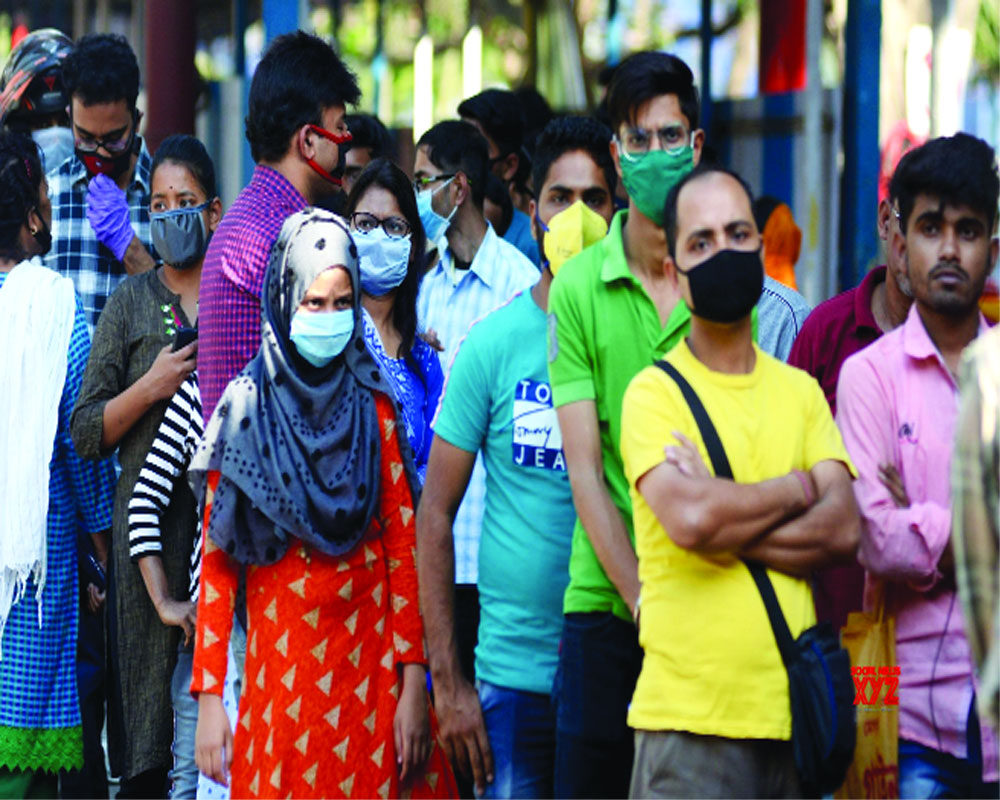Drugs like chloroquine, which the US, France and now India have approved, are stopgaps. Research needed for vaccine
As nations, India included, have gotten into a lockdown as part of a protocol to break the chain of infection, all isolation can do is to buy some time to develop an antidote or at least a containment drug. This is the real war against time as scientists and doctors across the globe are trying out all kinds of permutations and combinations. A virus trial poses severe challenges. First, the disease load ebbs by the time a drug has been created and is waiting to be tested through trials on affected subjects. Delayed clearances and approvals for safety and use mean the drug may be ready but does not have enough demand for a commercial rollout. Considering the heavy funding that goes into such research, a drug has to make economic sense before it can be manufactured. Sometimes the cure, even when rolled out, may be specific to one wave of outbreak and a virus mutation may not render it as effective in the second wave. Coronavirus poses an even more serious challenge — nobody knows its character, speed of mutation and changing transmittable capacities. And given the trail of devastation and deaths, it is giving us very little time to think. Which is why the World Health Organisation’s (WHO) solidarity project offers a slim ray of hope in arresting the virulence at least. As of now, it has approved the use of existing drugs to arrest severe deterioration in conditions because developing compounds from scratch is time-consuming. There is the drug combination already used against HIV. There’s a malaria treatment first tested during World War II. And the new anti-viral against ebola. The WHO study, which could include many thousands of patients in dozens of countries, is putting together a global database of hospitals that can log in patient responses to various drug regimes and establish a pattern of response.
Frankly, repurposing existing drugs is a workable option at this stage because they are already approved for other diseases and are safe. Some experts are also looking at unapproved drugs that have performed well in animal studies with earlier strains of Coronaviruses, which have caused severe acute respiratory syndrome (SARS) and Middle East respiratory syndrome (MERS). Besides, these drugs can be prophylactics, much needed to protect healthcare workers and others at high risk of infection. Also treatment time could be reduced, easing the pressure on critical medical infrastructure and making sure that more can access facilities and get succour. The HIV combo failed in a small study in China but has been successful in other parts, including Thailand and in Jaipur here. The WHO, therefore, believes a large trial with a greater variety of patients is warranted. The malaria drug chloroquine has been found to work on respiratory cells. It increases the endosomal PH required for the virus-host target cell fusion, limiting the virus takeover of the body. In SARS-Coronavirus, chloroquine was found to interfere with the glycosylation of cellular receptors of the virus. This isolated the bug. Though not acting on the virus per se, it is strengthening host systems and preventing the former from latching on to them. This is believed to halt the virus in the preliminary stages and arrest complications like pneumonia. Also, chloroquine molecules do not lose their effectiveness, both pre and post-infection. They increase the volume of zinc ions in the host cell to inhibit the virus. Remdesivir, the anti-viral, intravenous medicine for ebola, has had lab-level success and is being used in human trials. In the end, these are still just proactive but preventive steps and a global research and sustained funding is needed to tame the Coronavirus, which keeps on appearing in a deadlier form year after year. Conspiracy theories of bio-warfare strategies and big pharma complicity apart, COVID-19 has shown why nobody can be safe or be around to claim the benefits of such offensives. The world economy has tanked and humans have hopefully realised that they themselves could become the virus. A good beginning has been made between Governments on cooperative research. May be the altruism will not last once the crisis ebbs but one thing is clear, if a rapidly mutating virus can still wipe out humanity and flus continue to be pandemics in our timelines, then we clearly have not done enough to cure our minds of the invincibility of being the supreme race. All we need to be is just human, and as Indians, strictly comply with lockdown and distancing. Just remember Delhi’s Patient 10, a Dubai-returned woman, who has managed to infect an entire neighbourhood simply because she didn’t comply with any norms.


























